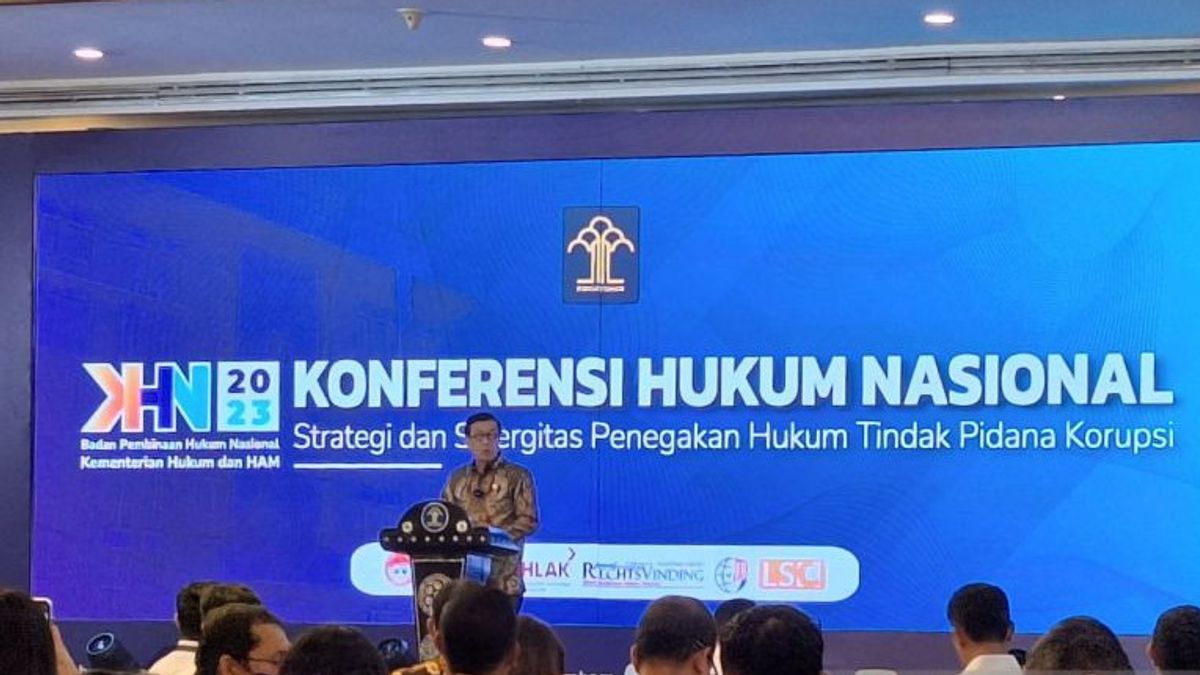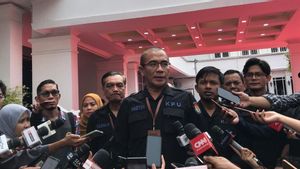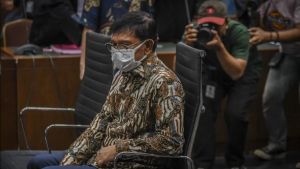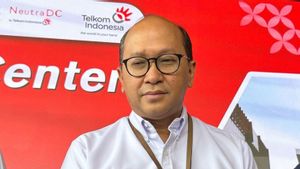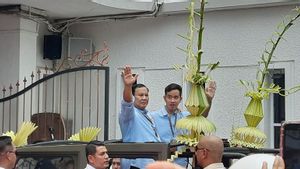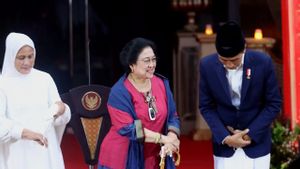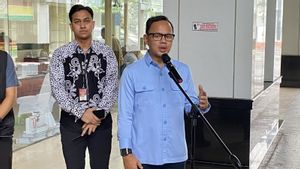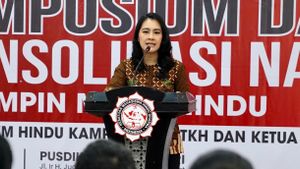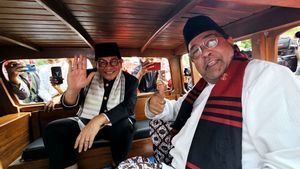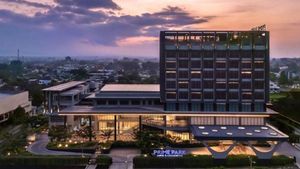JAKARTA - The Ministry of Law and Human Rights (Kemenkumham) said an update of anti-corruption rules was needed to respond to many changes and developments in society that affect law enforcement against criminal acts of corruption.
" Regulations regarding the eradication of corruption are in dire need of accurate reform. The renewal of this legislation must of course also be supported by commitment and seriousness from all stakeholders, especially state and government institutions," said Minister of Law and Human Rights Yasonna H Laoly as reported by ANTARA, Wednesday, October 25.
Yasonna revealed that in 2022 there were 597 corruption cases with state losses reaching Rp42.727 trillion.
The high number of corruption cases is due to the increasingly complex development of corruption, various modus operandi, and a wider scope of crime.
This condition requires the Indonesian government to evaluate law enforcement of corruption that has been in effect so far.
"We need to identify and map things that require renewal and improvement, both in terms of substance of regulation and institutionality," said Yasonna.
Currently, Indonesia already has Law no. 31 of 1999 concerning the Eradication of Criminal Acts of Corruption, as amended by Law Number 20 of 2001. However, during the 22 years of this rule, there have been significant changes in the architecture of international law that influence national law in the country.
One of them is the United Nations Convention against Corruption or the United Nations Convention against Corruption (UNCAC), which has been ratified by Law Number 7 of 2006 concerning the Ratification of UNCAC 2003.
UNCAC introduces four types of crimes that are not yet in national regulation, namely bribery of foreign public officials and international organization officials, trading influence, enriching themselves illegally, and bribery in the private sector.
"Although it has not been regulated in Indonesia, actually the crimes contained in UNCAC have occurred. Insufficient regulations will make law enforcement against corruption difficult to implement," said Yasonna.
The update of anti-corruption rules requires cooperation and input from all stakeholders, including the Constitutional Court, Supreme Court, Police, Attorney General's Office, Corruption Eradication Commission (KPK), Financial Transaction Reports and Analysis Center (PPATK), to academics.
According to him, ministries and institutions must coordinate to prevent corruption in accordance with various crimes.
"Every institution must be serious and consistent in preventing corruption. In this way, we can cut corruption in the upstream and ease the burden of law enforcement downstream," he said.
He also hopes that this National Law Conference can gather ideas from stakeholders so as to contribute to the strategy of law enforcement of corruption in the future.
"We hope that this conference can provide valuable direction and input for efforts to eradicate corruption in Indonesia," Yasonna hoped.
اقرأ أيضا:
The National Law Conference is a form of government attention, in this case the Ministry of Law and Human Rights BPHN related to the corruption eradication agenda.
So far, BPHN has continued to contribute to corruption prevention by two approaches, namely a regulatory approach and a sociological approach.
"The approach to regulations is carried out by conducting an analysis and legal evaluation of laws and regulations related to the enforcement of corruption laws. Meanwhile, the sociological approach is carried out by building awareness of anti-corruption laws in the community carried out by law enforcement officials at BPHN," said Head of BPHN Widodo Ekatjahjana.
Widodo also said that eradicating corruption is not an easy job and requires hard work and ongoing strategic steps in eradicating it.
"The National Law Conference is expected to lead us to the changes we dream of, Indonesia, which is free from the shackles of corruption," he said.
The English, Chinese, Japanese, Arabic, and French versions are automatically generated by the AI. So there may still be inaccuracies in translating, please always see Indonesian as our main language. (system supported by DigitalSiber.id)
